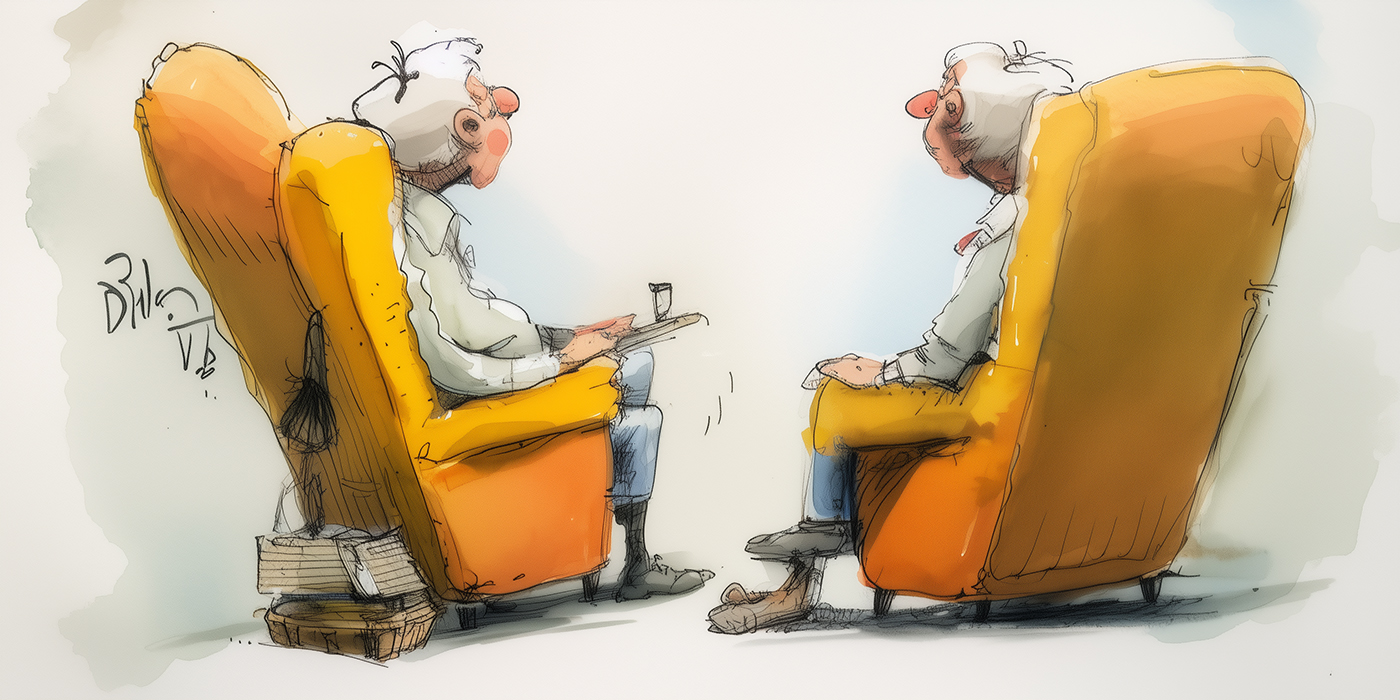I wanted it: a beautiful leather reclining chair and ottoman. Ads claim it as the most comfortable chair in the world. I’d tend to agree because a friend I was visiting offered me the use of his chair when I contracted a cold at his house. Toss or turn, it made no difference. I couldn’t sleep. Then Rich said, “Why don’t you try sleeping in my chair? It works for me every time.” I was desperate. When I sat down in the chair and adjusted it, it conformed to every contour of my cough-wracked body. I was soon fast asleep. I slept in the chair for three nights!
Returning home, I knew I had to have that kind of comfort available in my study. In fact, I soon became quite attached to the idea. However, I’m thrifty by nature and when I found out that my friend had paid nearly $2,000 for the chair more than 15 years ago, I knew that it would never be mine at that price. I could do better. Damn the obsession, full speed ahead! I scoured Internet shopping sites for comparable chairs. My reward came after days of searching well into the night. A local man had “The Chair” for only $900, and it was only two years old. I called him and he described the chair glowingly and said that he was willing to come down to $800. My compulsive self was hell-bent on getting it. Then the problem came to mind. My dear wife (of 37 years) and I instituted a policy years ago that such a major purchase required the agreement of both parties. I tried to justify my obsession by reasoning that I would simply use some of my inheritance to purchase it. Still the agreement was in principle.
Fear and anxiety that some other buyer was going to get it before I did set off a couple of major warning bells. I decided to bring the issue before my wife and, surprisingly, she suggested that we both visit the local furniture store that weekend and check out the floor models. While we were there, we both sat in the exact model that was for sale on the Internet. I was honest with the store owner that I really wanted to get the Internet chair and told him the price. He suggested that I buy it immediately. YAY! My wife sat in the chair and saw the color swatch. She seemed amenable to proceeding, but seemed a bit cautious. I noted this.
Monday’s quiet time gave me the opportunity to put the big question—to buy or not to buy—to my Higher Power. Three readings later, all encouraging charity and self-restraint, I was so depressed by the input that I got up and logged onto the Internet news. The articles on “Slumdog Millionaire” seemed interesting, so I watched the video reports. The young actors who so powerfully portrayed the misery and poverty in the slums of Mumbai seemed jubilant over their Oscars. I wept tears of gratitude for their brilliant reminder of the plight of the poor.
Returning to my quiet time, HP formed the transformative question: Could the money I wanted to spend on the chair perhaps be better used to love and serve those less economically fortunate than I? That was it! Frustrated again, I called my sponsor for help and began describing the situation. His terse response was, “If you’ve got $800 to spend on a comfy chair, then send it to me and I’ll make sure it gets to people who need it.”
I hung up just as my wife walked in from her staff meeting. She led out with, “Looks like we’re going to have a shortfall of $21,000 this summer in our budget for sending poor kids to camp. This will also mean that our staff salaries will be cut. I’m a bit depressed.”
My addict’s first thought was, “You think you’re depressed!” But thanks to the program, I passed on mentioning that. Instead, I paused and within a few moments, I got it. I said to her, “I’d like to give you the $800 that I was going to spend on the chair—no, let’s make that $1,000—to support the kids and your work.” She looked at me with grateful eyes and gave me a big hug. It was worth waiting for.
In service,
Dave Mc.






